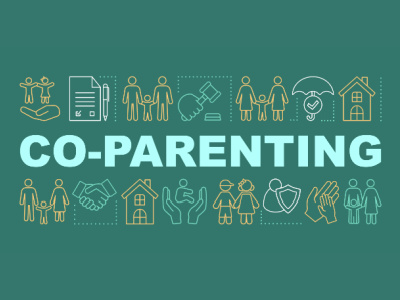Recent Blog Posts
Do OWI Arrests Increase During the Holidays in Wisconsin?
 The holiday season is a time for celebration and spending quality time with loved ones. However, it is also a time when alcohol consumption tends to increase at parties and gatherings and in other situations. With this increase in drinking, more people may attempt to drive when they are intoxicated. Because of this, the number of arrests for OWI (operating while intoxicated) tends to increase during the holidays. If you have been arrested for drunk driving, an experienced attorney can provide you with legal representation and help you determine your best options for defense.
The holiday season is a time for celebration and spending quality time with loved ones. However, it is also a time when alcohol consumption tends to increase at parties and gatherings and in other situations. With this increase in drinking, more people may attempt to drive when they are intoxicated. Because of this, the number of arrests for OWI (operating while intoxicated) tends to increase during the holidays. If you have been arrested for drunk driving, an experienced attorney can provide you with legal representation and help you determine your best options for defense.
Holiday Festivities and Alcohol Consumption
During the holiday season, many people indulge in alcoholic beverages as part of their celebrations. From office parties to family gatherings, alcohol often takes center stage. Unfortunately, this heightened drinking can lead some people to make poor decisions, such as getting behind the wheel while intoxicated.
How to Perform a Business Valuation During the Divorce Process
 A divorce can involve a variety of complex financial issues, including determining how a couple’s marital assets will be divided. These concerns can be especially consequential for business owners, and some of the most important aspects of this process will be related to determining the value of business interests. A proper business valuation is crucial for ensuring that marital property can be divided fairly and equitably. To address this issue correctly, a business owner or their spouse can work with an attorney who has experience addressing complex financial concerns related to business interests and other valuable assets.
A divorce can involve a variety of complex financial issues, including determining how a couple’s marital assets will be divided. These concerns can be especially consequential for business owners, and some of the most important aspects of this process will be related to determining the value of business interests. A proper business valuation is crucial for ensuring that marital property can be divided fairly and equitably. To address this issue correctly, a business owner or their spouse can work with an attorney who has experience addressing complex financial concerns related to business interests and other valuable assets.
The Importance of Business Valuation in Divorce
When a couple decides to end their marriage, marital property and assets are divided fairly. This includes any business interests owned by either spouse. A proper valuation is essential to ensure that both parties receive an equitable share of the full value of the marital estate, including the true value of the business. Even if a business is a non-marital asset that was owned by one spouse before the couple was married, a business valuation will be necessary, since this will help both parties understand the financial resources that will be available to them going forward.
How Can a Financial Advisor Assist with the Divorce Process?
 If you have made the decision to file for divorce, you will need to address a variety of financial issues. The divorce process involves the division of assets and debts, as well as concerns related to financial support, retirement planning, and other issues that can affect your short-term and long-term finances. In addition to legal representation from a divorce attorney, it is often beneficial to seek guidance from a financial advisor as you work to legally dissolve your marriage.
If you have made the decision to file for divorce, you will need to address a variety of financial issues. The divorce process involves the division of assets and debts, as well as concerns related to financial support, retirement planning, and other issues that can affect your short-term and long-term finances. In addition to legal representation from a divorce attorney, it is often beneficial to seek guidance from a financial advisor as you work to legally dissolve your marriage.
The Role of a Financial Advisor in a Divorce
A financial advisor can help manage money matters and provide advice on investments, taxes, and other financial concerns. When it comes to divorce, their role can extend beyond traditional financial planning. A financial advisor can assist you in making informed decisions about your finances during and after the divorce process.
What Are the Penalties for a Wisconsin Domestic Battery Arrest?
 If you have been arrested for domestic battery in Wisconsin, it is important to understand the potential penalties you may face. Domestic battery is a serious offense that can result in significant legal consequences, including criminal charges and restrictions on when you may be able to return to your home or communicate with your family members. By understanding the penalties associated with a domestic battery arrest in Wisconsin and working with an experienced attorney, you can determine how to navigate through the legal process as you defend against criminal charges.
If you have been arrested for domestic battery in Wisconsin, it is important to understand the potential penalties you may face. Domestic battery is a serious offense that can result in significant legal consequences, including criminal charges and restrictions on when you may be able to return to your home or communicate with your family members. By understanding the penalties associated with a domestic battery arrest in Wisconsin and working with an experienced attorney, you can determine how to navigate through the legal process as you defend against criminal charges.
Understanding Domestic Battery
In Wisconsin, domestic battery falls under the broader category of domestic abuse. It refers to any act of physical violence or threat of harm against an adult family member or a person who shares a home–or formerly shared a home–with the alleged offender. Wisconsin’s definition includes spouses, former spouses, people who share a child together, people who are dating or have dated in the past, and roommates.
What Real Estate Developers Need to Know About Entitlements
 Real estate development involves a variety of complex legal and financial concerns. From finding the right property to securing financing, there are many factors that developers must consider. Because zoning laws are a crucial factor in real estate development, it is important to understand the role that entitlements will play when requesting approval from a local government to develop a property. When addressing issues related to zoning, entitlements, licensing, and variances, developers can work with an experienced attorney to make sure these matters will be handled properly.
Real estate development involves a variety of complex legal and financial concerns. From finding the right property to securing financing, there are many factors that developers must consider. Because zoning laws are a crucial factor in real estate development, it is important to understand the role that entitlements will play when requesting approval from a local government to develop a property. When addressing issues related to zoning, entitlements, licensing, and variances, developers can work with an experienced attorney to make sure these matters will be handled properly.
What Are Entitlements?
In the context of real estate, entitlements refer to the legal rights granted by government agencies that allow developers to use their property for specific purposes. These rights typically include zoning approvals, building permits, environmental clearances, and other necessary permissions.
7 Tips for Co-Parenting Successfully After a Wisconsin Divorce
 Moving forward after a divorce can be challenging, especially for parents who need to establish new living situations and determine how they will share the responsibility of raising their children. For divorcing parents in Wisconsin, it is important to establish positive co-parenting relationships, which will ensure that both parents can continue to play an active role in their children's lives. While co-parenting may present its own set of challenges, with effective communication and cooperation, parents can make sure they are acting in their children’s best interests when sharing custody and physical placement.
Moving forward after a divorce can be challenging, especially for parents who need to establish new living situations and determine how they will share the responsibility of raising their children. For divorcing parents in Wisconsin, it is important to establish positive co-parenting relationships, which will ensure that both parents can continue to play an active role in their children's lives. While co-parenting may present its own set of challenges, with effective communication and cooperation, parents can make sure they are acting in their children’s best interests when sharing custody and physical placement.
As you work to address legal issues related to care of your children during your divorce, an experienced attorney can help you create a parenting agreement that will allow you to co-parent your children effectively. As you address these concerns, you can do the following to make sure your family will be able to succeed in the years ahead:
Can Shoplifting Lead to Felony Charges in Wisconsin?
 Shoplifting or retail theft is often seen as a minor offense that may be committed by teenagers or others who steal low-value items from stores. However, this form of theft is still considered a serious crime that can have significant legal consequences. In the state of Wisconsin, shoplifting offenses are typically charged as misdemeanors. However, under certain circumstances, shoplifting can lead to felony charges. A person who has been accused of retail theft will need to understand their rights and their options for defense. Representation from an experienced attorney can be crucial in these situations.
Shoplifting or retail theft is often seen as a minor offense that may be committed by teenagers or others who steal low-value items from stores. However, this form of theft is still considered a serious crime that can have significant legal consequences. In the state of Wisconsin, shoplifting offenses are typically charged as misdemeanors. However, under certain circumstances, shoplifting can lead to felony charges. A person who has been accused of retail theft will need to understand their rights and their options for defense. Representation from an experienced attorney can be crucial in these situations.
What Constitutes Retail Theft in Wisconsin?
Retail theft occurs when a person intentionally takes possession of or carries away merchandise from a store without paying its full price. While the most commonly recognized form of shoplifting involves pocketing merchandise and leaving a store without paying, there are other activities that could result in retail theft charges. Some examples include:
When Will Use Variances Be Required for Building Permits?
In the process of obtaining building permits, business owners and real estate developers may encounter situations where they need to address special use variances with the Board of Zoning Appeals. Understanding when these variances are required is crucial to navigating the complex world of zoning and land use regulations. Because the procedures that must be followed when handling these types of appeals can be complicated, it is crucial for property owners and developers to work with an attorney who has experience in this area.
What Is a Use Variance?
A use variance is a permission granted by the local government that allows a business or entity to use property in a way that deviates from the standard zoning regulations. These deviations typically involve land uses that are prohibited within a particular zone but may still be compatible with surrounding properties.
Is Equal Property Division Required in a Wisconsin Divorce?
 For any couple who is going through a divorce, one of the key issues that needs to be addressed is property and asset division. This is one of the primary financial concerns that will affect spouses. Decisions about property division will determine the financial resources available to each spouse, in consideration of establishing new living arrangements, covering bills and expenses, and addressing other needs. When contemplating issues related to property, spouses will need to understand the community property laws in Wisconsin and the factors a court considers when determining division of marital assets. An experienced divorce lawyer can provide guidance on how the laws may be applied in a specific situation. They can help negotiate a property settlement and address other related legal concerns.
For any couple who is going through a divorce, one of the key issues that needs to be addressed is property and asset division. This is one of the primary financial concerns that will affect spouses. Decisions about property division will determine the financial resources available to each spouse, in consideration of establishing new living arrangements, covering bills and expenses, and addressing other needs. When contemplating issues related to property, spouses will need to understand the community property laws in Wisconsin and the factors a court considers when determining division of marital assets. An experienced divorce lawyer can provide guidance on how the laws may be applied in a specific situation. They can help negotiate a property settlement and address other related legal concerns.
How Can I Address Wasted or Destroyed Assets During My Divorce?
 In a divorce, the division of assets is often one of the most contentious issues. All of the property a couple owns will need to be considered, and there needs to be a determination on who will be responsible for paying the debts the couple owes. As couples take steps to gain an understanding of their financial position, and make decisions about how assets and debts will be divided, one spouse may find that the other has wasted or destroyed assets. This can significantly impact the other spouse’s financial well-being, leaving them with limited resources or debts that need to be repaid.
In a divorce, the division of assets is often one of the most contentious issues. All of the property a couple owns will need to be considered, and there needs to be a determination on who will be responsible for paying the debts the couple owes. As couples take steps to gain an understanding of their financial position, and make decisions about how assets and debts will be divided, one spouse may find that the other has wasted or destroyed assets. This can significantly impact the other spouse’s financial well-being, leaving them with limited resources or debts that need to be repaid.
When one spouse takes actions that reduce the value of the marital estate, this is known as “dissipation of assets.” It is important for spouses to understand how this issue will be addressed in a Wisconsin divorce. To make sure assets can be valued correctly, and that asset dissipation will be considered when dividing assets and debts, it is important to work with an attorney who has a strong understanding of these issues and who has experience helping clients address and resolve financial issues during the divorce process.








